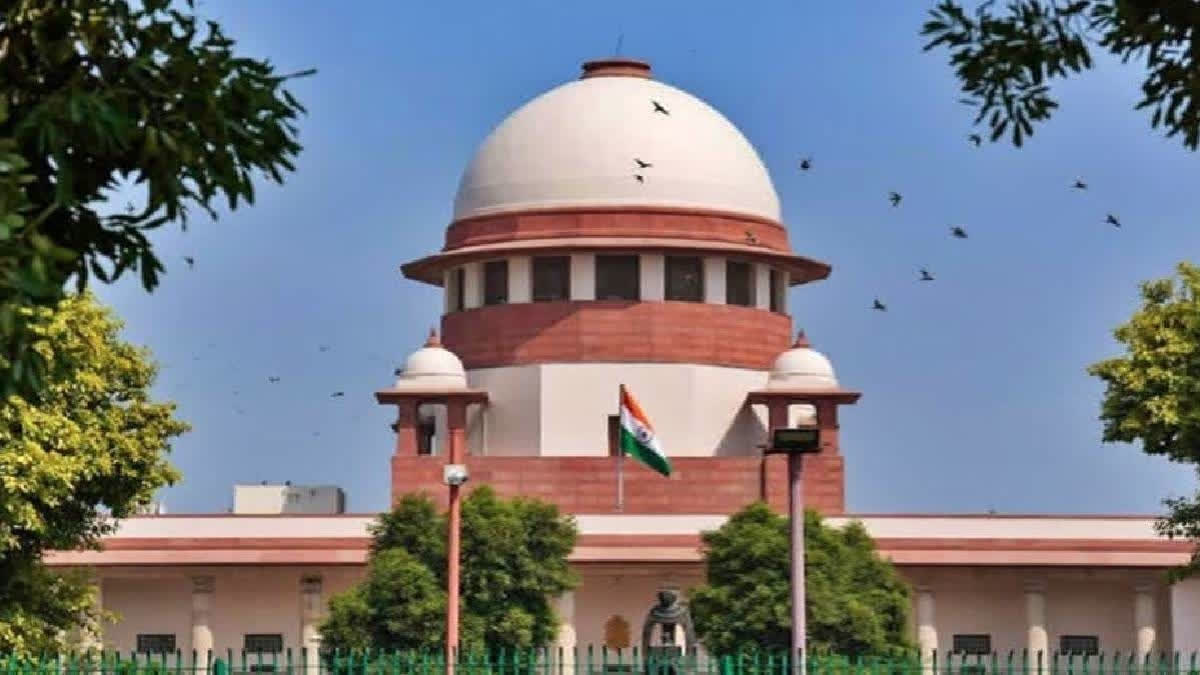New Delhi: Supreme Court judge Justice Surya Kant on Friday said the two-judge bench doubting the correctness of a decision by a five-judge bench in the Azeez Basha case, in the AMU matter, and referring it to a seven-judge bench suffered from multiple illegalities, including judicial impropriety, "is bad in law and ought to be set aside".
A seven-judge bench of the apex court led by Chief Justice of India DY Chandrachud, in a majority judgment of 4:3 ratio, overruled a 1967 constitution bench decision (Azeez Basha), which held that a minority community cannot claim to have established an educational institution if it was created by a statute. The CJI authored the majority judgment on behalf of himself and Justices Sanjiv Khanna, JB Pardiwala, and Manoj Misra.
The majority judgment said a legislation or an executive action that discriminated against religious or linguistic minorities in establishing or administering educational institutions, was ultra vires Article 30(1) of the Constitution. Article 30 deals with the right of minorities to establish and administer educational institutions. Article 30 (1) says all minorities, whether based on religion or language, shall have the right to establish and administer educational institutions of their choice.
Justice Surya Kant, who authored a separate dissenting opinion, said: "Azeez Basha rightly holds that the expression ‘educational institutions’ is of very wide import and would also include universities. It has correctly understood that a religious minority has the right to establish a university under Article 30(1). Azeez Basha is also right in observing that there was no law in India before the Constitution came into force, which prohibited any private individual or body from establishing a university."
He said Azeez Basha might not be correct in its entirety and as a general principle of law, to hold that even if the AMU Act, 1920 was passed as a result of the efforts of the Muslim minority it "does not mean that the Aligarh University when it came into being under the 1920 Act was established by the Muslim minority".
Justice Kant said it is our considered opinion that the establishment of a university, whether as a minority institution or as a religion-neutral institution of high standard, is a complex and mixed question of law and fact. "The legislative intent behind the establishment of a university or an institution will have a significant role in determining the status of such an institution," he said.
"If the Legislature by itself (particularly, post-Constitution) decides to establish an institution where besides preserving the culture, values, traditions, language and conventions of a religious or linguistic minority community, it promotes other streams of education without any barrier to children belonging to other religions, it will be highly debatable to discern whether such a university can take refuge under the protective umbrella of Article 30," said Justice Kant.
Justice Kant said that in order to seek protection under Article 30 of our Constitution, the minority institution must satisfy the conjunctive test, namely that it was established by a minority community and has been and is being administered by such a community.
In connection with reference, Justice Kant said the reference was not maintainable, as it was bad in law and ought to be set aside. He pointed out in view of the dictum of the constitution bench in the Dawoodi Bohra case, a two-judge bench has no authority whatsoever to doubt or disagree with a judgement of the larger bench, and directly refer the matter to a bench having a numerically greater strength than the matter so doubted.
"The reference in Anjuman (instant case) to a seven-judge bench for the reconsideration of the five-judge decision in Azeez Basha (supra) is bad in law and ought to be set aside," he said.
"There is no substantial difference between 'doubting' or 'disagreeing' with a judgement. That being so, the reference by a two-judge bench in Anjuman doubting the correctness of the five-judge bench in Azeez Basha (supra) and referring it to a seven-judge bench suffers from multiple illegalities, including judicial impropriety," he said.
He said reference by two judge bench is nothing but a challenge to the authority of the CJI being the master of the roster and in derogation of the special power enjoyed under Article 145 of the Constitution read with Order VII Rule 2 of the Supreme Court Rules, 1966 (as was applicable).
However, Justice Kant held the subsequent reference of February 12, 2019, in which the then CJI was the presiding judge, is maintainable. Justice Kant said the constitution bench in Azeez Basha (supra), when it holds that since Section 6 of the AMU Act, 1920 stipulates that degrees conferred by AMU would be recognised by the government, it could not have been 'brought into existence by a private individual or body', is seemingly incorrect.
Justice Kant said: “The question pertaining to whether AMU satisfies the.... test of 'establish' and 'administer' so as to seek protection of Article 30 of the Constitution, and which will concomitantly entail a mixed question of facts and law, will be determined by a regular bench."



